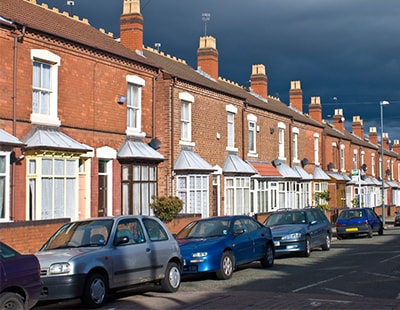Research by property firm Savills has revealed that a large majority (77%) of buyers say that the potential energy consumption of their next home has become more important to them.
The agency says this is a clear sign that the increasing cost of living is at the forefront of buyers’ minds, as energy costs continue to soar.
The firm’s survey of 1,000 buyers and sellers, conducted in the last week of August, showed that for the majority (62%), recent interest rate rises and the rising cost of living had not yet affected their budget for their next home.
Nevertheless, purchasers are now looking to cut their spending in other ways by placing more emphasis on the prospective running costs of their next home.
As expected, the squeeze is being felt most keenly at the lower end of the housing market, where a reduction of discretionary spending is much harder as incomes are usually lower.
The vast majority of respondents looking to buy a property below £500,000 said that energy consumptions was now a more crucial consideration.
Frances McDonald, research analyst at Savills, said: “With energy bills and inflation dominating news headlines, it’s no surprise prospective home buyers are beginning to think about more than just the price of their next property.
“Our previous buyer and seller survey in April also highlighted that the EPC rating of a property played an important part in decision making for more than two-thirds of respondents. And, six in ten buyers (59%) would be willing to pay more for a home if 75% of its energy came from renewable sources.”
Despite this, barriers remain when it comes to implementing the most effective solutions. A quarter of people had looked into the possibility of installing solar panels, but only 5% had actually carried out the work.
In a similar vein, approximately a fifth had investigated air source heat pumps and ground source heat pumps. However, only 4% and 2%, respectively, had undertaken the works.
McDonald added: “Buyers are beginning to think much more about energy-efficiency improvements, but easy fixes, such as low energy lighting or replacement boilers, are the most likely to have been either investigated or implemented, as the cost is more manageable, payback is more immediate and the technology well-established.”
She added: “And, although investigated by a higher proportion, few have so far made the more difficult and costly improvements, including air or ground source heat pumps and solar panels.
“Even with the energy price guarantee coming into effect, household bills are on the rise, and the payback period for improvements is decreasing quickly. But, as more and more importance is placed on our homes’ energy performance, it’s not just going to be about a long term saving on running costs but also future-proofing its value.”













.png)


.png)




Join the conversation
Be the first to comment (please use the comment box below)
Please login to comment